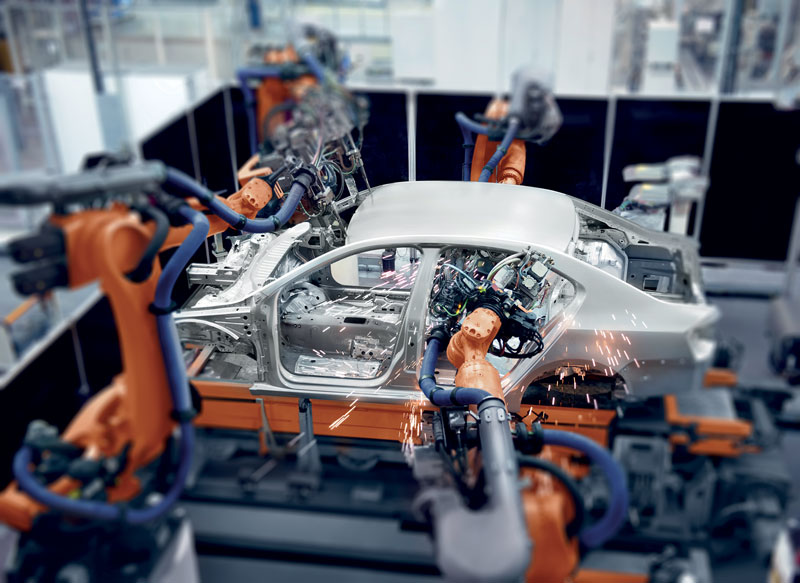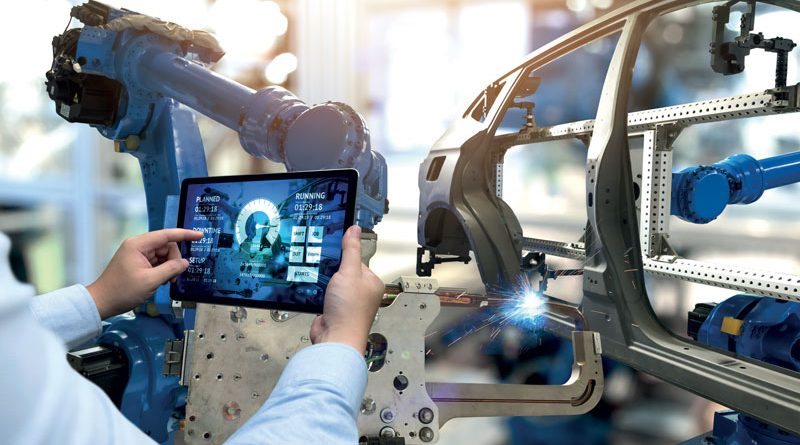Automotive in the Forefront of the Ecological Transition
The automotive sector will lead the ecological transition in our country. During the joint press conference held on March 24 by ANFIA (the national association of the automotive industry), FEDERAUTO and UNRAE, the need for measures to promote environmental and economic sustainability emerged: new industrial policy tools, structural incentives for the renewal of the fleet, the spread of recharging infrastructures and the tax reform on cars. Meanwhile, 2021 got off to a good start: +2.3% for production.
On March 24, ANFIA, the National Association of the Automotive Industry, organized an online press conference to illustrate the performance of the automotive sector in Italy and outline the trends that will drive the ecological transition in our country. The meeting was attended by FEDERAUTO, the Italian Federation of Car Dealers, and UNRAE, the National Union of Foreign Car Representatives. During the meeting, the need emerged for a strategic plan to drive the market towards e-mobility and accelerate investments in new technologies, namely automation, connectivity, diffusion of infrastructures (public and domestic), for hydrogen too. The three associations also hope that incentives will be refinanced in and that the ecobonus will become structural until 2026, as well as further incentives for the replacement of the fleet of commercial and passengers transport vehicles. At the same time, it is necessary to initiate a comprehensive tax reform in the sector, in particular, for company cars to support Italian companies that are currently penalized compared to other European countries. It is also desirable to reshape the “car tax” in a green key. These are, in short, some of the articulated proposals that the main Organizations of the automotive sector address to the Government in order to give a decisive turn for the development of mobility in our country in the direction of environmental and economic sustainability.

A strategic plan that support the renewal of the vehicle fleet
The Presidents of the three Associations (Paolo Scudieri of ANFIA, Adolfo De Stefani Cosentino of FEDERAUTO, Michele Crisci of UNRAE) highlighted the data of the crisis induced by the pandemic in 2020, with the loss of 27.9% of passenger cars, 15.1% of commercial vehicles, 14.4% of industrial vehicles, 21.7% of trailers and semi-trailers and 24.8% of buses. The approved incentives partially mitigated the drop in registrations (employment also benefited from this), recording nearly 100 million hours of layoffs (more than doubling in the 2019 comparison) compared to the industry-wide total of about 3 billion hours. The “green” turnaround, on which car manufacturers and the entire automotive supply chain have been investing for years, has received a positive impulse from the measures introduced in our country to react to the pandemic. In 2020, 125,000 old and polluting cars were scrapped, contributing to a saving of over 61,000 tons of CO2/year. Although we are moving towards sustainability, Italy still has one of the oldest car fleets in Europe, with an average age of 11.5 years compared to 8 years in the UK and 9 years in Germany and France. At this rate, it would take 27 years to renew the entire Italian fleet. Even higher is the average age of industrial vehicles (13.6 years), commercial vehicles (12.5 years) and buses (12 years).
ANFIA, FEDERAUTO and UNRAE reiterate the need for a strategic plan for the automotive supply chain, with the participation of all players in the sector, in order to tackle the transition by urgently starting to refinance the above incentives for the current year.

Comments from the presidents of the three organizations
Paolo Scudieri, President of ANFIA, said: “The mobility revolution implies, for our supply chain, a production transition that requires significant investments in new technologies: not only electric, but also hydrogen, connectivity, autonomous driving and digitalization of processes. A challenge for which companies need the support of interventions to be implemented through the Recovery Plan in order to maintain high competitiveness and make Italy attractive for new investors: strengthen and simplify industrial policy tools and make those for the target regions equally accessible to companies in the Centre-North; support not only investments in R&I, but also investments in productive reconversion; organize programs for the retraining of skills; extend the Transition 4.0 Plan, encourage the aggregation of SMEs and private equity operations. The measures dedicated to the infrastructural development of the country must concern the recharging network – in the right mix between public, private and corporate – hydrogen infrastructures, vehicle-to-grid technologies and smart roads…”. According to the Chairman of FEDERAUTO, Adolfo De Stefani Cosentino, “2020 has had a significant impact on dealer networks, which have had to cope with a heavy drop in turnover (-25% on average). The market support introduced in the second half of the year has made it possible to stem the losses, but the road back to equilibrium is still uphill. A decisive change of pace, also in order to accelerate the renewal of the obsolete and unsafe car fleet and to bridge the competitive gap with the other main European countries, is represented by the reform of car taxation…”. Michele Crisci, President of UNRAE, said: “For years, manufacturers have been making significant investments to design and build the new sustainable mobility. The unexpected global crisis has now also called upon governments to play their part in accelerating the achievement of sustainable development objectives that combine economic growth and respect for the environment. Political planning is needed to guide, in the short and long term, the transition towards ‘green’ mobility compatible with the economic and social needs of a sector that has always been a driving force for the economy of our country…”
2021 starts well: +2.3% for the Italian automotive production
In January 2021, according to ISTAT data provided by ANFIA, the production of the Italian automotive industry as a whole recorded an increase of 2.3%; in the whole of 2020 a -21%.variation was registered. “After a fourth quarter of 2020 in recovery, the opening of 2021 confirms a positive trend for the production of the automotive industry,” said Gianmarco Giorda, Director of ANFIA, “also thanks to the clear growth in orders last December (+23.6%), particularly marked for the domestic market (+36.5%). A contribution to this trend undoubtedly derives from the demand support measures in force since the beginning of the year, especially with reference to passenger cars…”. Among the factors that pose a threat to the restart of production in the supply chain are the supply crisis and the price increases of many raw materials, especially steel, plastics and semiconductors, with the shortage of the latter already responsible for production stoppages.

